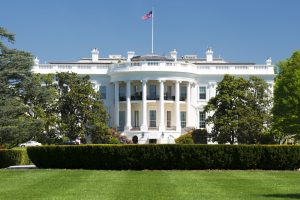
Highlighting the importance of U.S. global leadership, U.S. Sen. Todd Young (R-IN) on Monday made the case that modern threats like terrorism, pandemics and cyberattacks require that the United States actively engage with other countries.
Young, who delivered his remarks during a keynote address at a U.S. Global Leadership Coalition (USGLC) event in Indianapolis, said in light of today’s threats, U.S. leaders can’t protect citizens if they “pretend America is an isolated fortress.”
“… The transnational threats we confront require the United States to proactively work with other countries — rather than trying to go it alone. But, it’s not just our security that demands U.S. international leadership and engagement — it’s our economic interests too.”
Young noted that 95 percent of the world’s consumers are located outside of the United States. In Young’s home state of Indiana, 812,000 jobs are tied to international trade and more than $34.7 billion in goods are exported to foreign markets each year.
“In other words, the economy, jobs and prosperity in our state depend greatly on talented and hardworking Hoosiers having the ability to access markets abroad and compete internationally,” Young said.
Furthermore, U.S. international leadership and engagement is not just about security and prosperity, but also about doing good, he said. “Our nation is at its best when we help feed the hungry, protect the vulnerable, speak out for political prisoners and assist those who seek to enjoy the universal human rights that we enjoy.”
Despite the need for diplomacy, development and defense, Young said, the Trump administration’s fiscal year 2018 budget request recommended cutting the budgets for the Department of State and the U.S. Agency for International Development (USAID) by about one third.
“While I support the administration’s desire to ‘improve efficiency, effectiveness, and accountability,’ slashing the Department of State and USAID budgets would undermine those goals. On the contrary, a cut of that magnitude, especially without first conducting the necessary strategic analysis, would do significant and enduring damage to our diplomacy and development enterprises — not to mention the security, prosperity and good that those efforts help achieve.”
In order to build broad support for investment in diplomacy and development, Young said those programs need to operate efficiently to ensure the nation’s freedom, security and prosperity. To help achieve this, Young introduced the National Diplomacy and Development Strategy Act of 2017, S. 1228, in May. The Senate Foreign Relations Committee has passed a version of the legislation.
Additionally, Young authored legislation to hold the State Department and USAID accountable. The bipartisan Department of State and United States Agency for International Development Accountability Act of 2017, S. 418 was introduced in February. The bill would require the Department of State and USAID to implement recommendations from the U.S. Government Accountability Office or explain to Congress why they weren’t enacted.



